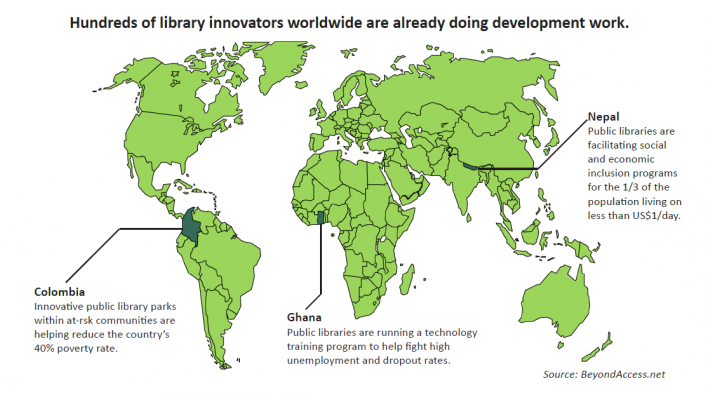
Page last updated on
The briefing paper “Public access: Supporting digital inclusion for all – Maximising the impact of information and communication technologies (ICTs) for inclusive social and economic development” was produced for the Commission on Science and Technology for Development (CSTD) Seventeenth Session, which took place 12-16 May 2014 in Geneva.
It includes a checklist of action points for policy makers that highlights an ecosystem approach to ensure better public access. The most important initiatives that need to be considered are:
-
Build awareness and information sharing. There is generally a shortage of knowledge of the importance of public access, and on how to implement and sustain public access facilities, especially in developing countries. Knowledge of best practices and sustainable solutions using the latest technologies needs to be assembled and circulated, in print, in online fora and in training workshops.
-
Improve the enabling environment – a basic requirement for public access facilities is low-cost high-speed connectivity. This requires a conducive policy and regulatory environment which ensures competitive, pervasive and reliable provision of internet services.
-
Implement use of universal access funds and other public policy instruments to support public access, not only at the national level but also through provincial or local municipal authorities.
-
Address human resource deficiencies. Policies need to be aimed at ensuring a sufficient number of appropriately trained people at a technical level to support public access facilities, for their staff to help in the provision of ICT services to the public, and for the public in how to make the most effective use of them, especially by women and other disenfranchised groups.
-
Invest in locally relevant applications and service development, particularly e-government services. This will help fuel the demand for access and make public access facilities more sustainable. Libraries in particular can be an effective vehicle for supporting the implementation of e-government strategies at the local level.
-
Set targets and monitor progress. Targets and indicators need to be adopted to enable measurement of progress in providing public access, and in assessing impact. This should be based on an objective methodology for evaluating the quality of access available to the general public.


